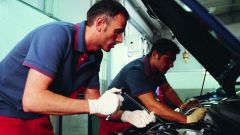How to pass the medical examination and what diseases can create problems when passing and even cause the rejection?
- The passage of the fee for a driver's license usually begins with a visit to an eye specialist – an ophthalmologist. Need to know if the aspirant has acute or chronic diseases of the eye, or present pathological changes of the organs of vision, then he must refrain from driving even if in everyday life a person feels quite comfortable. However, on the road good vision is fundamentally important because the driver needs to perceive and assess the situation.
- Also to pass a medical examination, you must see a doctor-otolaryngologist. If the candidate has low rates of hearing or he has a chronic inflammation of the middle ear – it can serve as a contraindication to driving.
- A neurologist will not give a "good" candidate for a driver's license if he has for the last several years (usually two) were observed in diseases accompanied by convulsions. This is usually epilepsy and sometimes serious dysfunction of the vestibular apparatus.
- If the applicant suffers from a mental illness (chronic or acute) or has problems with alcohol or drugs is a sure guarantee that the way to drive would be closed for him.
- Hypertension (second or third degree) or, simply, high blood pressure, will be the reason to the fact that the Commission deny the privilege. Some candidates ' performance pressure can rise just because they get nervous before a doctor's visit. Therefore, before you enter the office, it is advisable to catch my breath, to relax and calm down.
Of course, the physical examination is actually not so difficult. The list of contraindications is not small, but it is fully justified. After all, if the restrictions were less, the number of unhealthy (and sometimes inadequate) citizens on our roads would grow exponentially. To what it led to – not difficult to guess.






